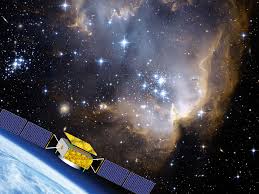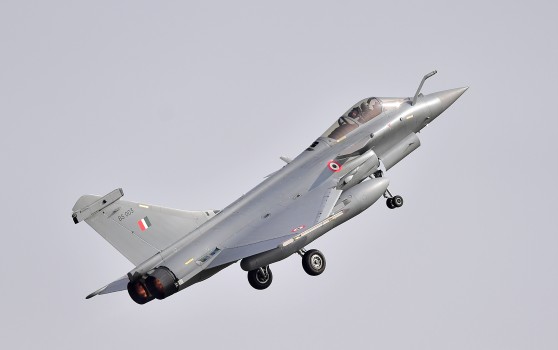
The Dark Matter Particle Explorer (DAMPE) spacecraft. Image courtesy: dpnc.unige.ch/dampe/
BEIJING (PTI): China will launch a probe satellite with the world's widest observation spectrum by the end of this year to study the elusive dark matter and other high-energy particles in space.
The dark matter particle explorer (DAMPE) will observe the direction, energy and electric charge of high-energy particles in space in search of dark matter, Chang Jin, chief scientist of the project, told media at the Shanghai Engineering Centre for Microsatellites (SECM) on May 29.
The probe, the first satellite in a programme consisting of five research satellites, will also be used to study the origin of cosmic rays and observe high-energy gamma rays.
All key components of the satellite have been tested and are functioning well, and it is expected to launch from the Jiuquan Satellite Launch Centre by the end of this year, the SECM said.
The satellite is designed to function for three years, state-run Xinhua news agency reported.
Chang said DAMPE will have the widest observation spectrum and highest energy resolution of any dark matter probe in the world.
Dark matter is one of the most important mysteries of physics. Scientists believe in its existence based on the law of universal gravitation, but have never directly detected it.
Accounting for over a quarter of the universe's mass-energy balance, it can only be observed indirectly through its interaction with visible matter.
Many scientists, such as Nobel Prize winner in physics Yang Zhenning, believe that development of dark matter theory may help people understand phenomena that cannot be explained with current knowledge, triggering "revolutionary progress" in physics.
The space study programme also plans to launch three more satellites within the next two years, including a retrievable scientific research satellite, one for quantum science experiments, as well as a hard X-ray telescope for black hole and neutron star studies.
The SECM is a non-profit organisation established by the Chinese Academy of Sciences and the Shanghai Municipal Government.
 Next Article
Next Article













The Indian Air Force, in its flight trials evaluation report submitted before the Defence Ministry l..
view articleAn insight into the Medium Multi-Role Combat Aircraft competition...
view articleSky enthusiasts can now spot the International Space Station (ISS) commanded by Indian-American astr..
view article